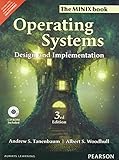A Pattern Language, Alexander and Ishikawa and Silverstein http://amzn.to/2s9aSSc
Advanced Programming in the Unix Environment , Stevens http://amzn.to/2qPOMjN
Algorithmics: the Spirit of Computing, Harel http://amzn.to/2rW5FNS
Applied Crytography, Wiley http://amzn.to/2rsULxS
Clean Code, Martin http://amzn.to/2sIOWtQ
Clean Coder, Martin http://amzn.to/2rWgbEP
Code Complete, McConnel http://amzn.to/2qSUIwE
Code: The Hidden Language of Computer Hardware and Software, Petzold http://amzn.to/2rWfR9d
Coders at Work, Seibel http://amzn.to/2qPCasZ
Compilers: Principles, Techniques, & Tools, Aho http://amzn.to/2rCSUVA
Computer Systems: A Programmer's Perspective, O'Hallaron and Bryant http://amzn.to/2qPY5jH
Data Flow Analysis: Theory and Practice, Khedker http://amzn.to/2qTnSvr
Dependency Injection in .NET, Seemann http://amzn.to/2rCz0tV
Domain Driven Design, Evans http://amzn.to/2sIGM4N
Fundamentals of Wireless Communication, Tse and Viswanath http://amzn.to/2rCTmTM
Genetic Programming: An Intrduction, Banzhaf http://amzn.to/2s9sdut
Head First Design Patterns, O'Reilly http://amzn.to/2rCISUB
Implementing Domain-Driven Design, Vernon http://amzn.to/2qQ2G5u
Intrduction to Algorithms, CLRS http://amzn.to/2qXmSBU
Introduction to General Systems Thinking, Weinberg http://amzn.to/2qTuGJw
Joy of Clojure, Fogus and Houser http://amzn.to/2qPL4qr
Let over Lambda, Hoyte http://amzn.to/2rWljcp
Operating Systems: Design and Implementation, Tanenbaum http://amzn.to/2rKudsw
Parsing Techniques, Grune and Jacobs http://amzn.to/2rKNXfn
Peopleware: Productive Projects and Teams, DeMarco and Lister http://amzn.to/2qTu86F
Programming Pearls, Bentley http://amzn.to/2sIRPe9
Software Process Design: Out of the Tar Pit, McGraw-Hill http://amzn.to/2rVX0v0
Software Runaways, Glass http://amzn.to/2qT2mHn
Sorting and Searching, Knuth http://amzn.to/2qQ4NWQ
Structure and Interpretation of Computer Programs, Abelson and Sussman http://amzn.to/2qTflsk
The Art of Unit Testing, Manning http://amzn.to/2rsERDu
The Art of Unix Programming, ESR http://amzn.to/2sIAXUZ
The Design of Design: Essays from a Computer Scientist, Brooks http://amzn.to/2rsPjev
The Effective Engineer, Lau http://amzn.to/2s9fY0X
The Elements of Style, Strunk and White http://amzn.to/2svB3Qz
The Healthy Programmer, Kutner http://amzn.to/2qQ2MtQ
The Linux Programming Interface, Kerrisk http://amzn.to/2rsF8Xi
The Mythical Man-Month, Brooks http://amzn.to/2rt0dAR
The Practice of Programming, Kernighan and Pike http://amzn.to/2qTje0C
The Pragmatic Programmer, Hunt and Thomas http://amzn.to/2s9dlvS
The Psychology of Computer Programming, Weinberg http://amzn.to/2rsPypy
Transaction Processing: Concepts and Techniques, Gray and Reuter http://amzn.to/
Types and Programming Languages, Pierce http://amzn.to/2qT2d6G
Understanding MySQL Internals, Pachev http://amzn.to/2svXuFo
Working Effectively with Legacy Code, Feathers http://amzn.to/2sIr09R
Zen of graphics programming, Abrash http://amzn.to/2rKIW6Q


1. Systems Operations is first and foremost about understanding systems, in all of their complexity, which means understanding the internals of your OS primarily.
2. Performance and networking, in particular, are super important areas to focus on understanding when it comes to learning the topic to help with software development.
3. A lot of it is about understanding concepts in abstract and being able to extrapolate to other situations and apply these concepts, so there's actually quite a lot of useful information that can be learned on one OS and still applied to another OS (or on one game engine and applied to another, et al).
Here's a few books I think are worth reading, not in any particular order of prevalence, but loosely categorized
Databases:
High Performance MySQL: https://www.amazon.com/gp/product/1449314287/
SQL Queries for Mere Mortals: https://www.amazon.com/gp/product/0321992474/
The Art of SQL: https://www.amazon.com/gp/product/0596008945/
Networking:
TCP/IP Illustrated: https://www.amazon.com/exec/obidos/ISBN=0201633469/wrichards... (updates on author's site at http://www.kohala.com/start/tcpipiv1.html)
The TCP/IP Guide: https://www.amazon.com/TCP-Guide-Comprehensive-Illustrated-P...
UNIX Network Programming: https://www.amazon.com/dp/0131411551
Beej's Guide to Network Programming: http://beej.us/guide/bgnet/
Operating Systems:
Operating Systems Concepts: https://www.amazon.com/Operating-System-Concepts-Abraham-Sil... (various editions, I have the 7th edition... I recommend you find the latest)
Modern Operating Systems: https://www.amazon.com/Modern-Operating-Systems-Andrew-Tanen... (the "Tanenbaum Book")
Operating Systems Design and Implementation: https://www.amazon.com/Operating-Systems-Design-Implementat-... (the other one, the "MINIX Book")
Windows Internals:
Part 1: https://www.amazon.com/Windows-Internals-Part-architecture-m...
Part 2: https://www.amazon.com/Windows-Internals-Part-2-7th/dp/01354... (I had the pleasure of being taught from this book by Mark Russinovich and David Solomon at a previous employer, was an amazing class and these books are incredible resources even applied outside of Windows, we used 5th edition, I linked 7th, which has the 2nd part pending publication).
MacOS Internals:
Part 1: https://www.amazon.com/MacOS-iOS-Internals-User-Mode/dp/0991...
Part 2: https://www.amazon.com/MacOS-iOS-Internals-II-Kernel/dp/0991...
Part 3: https://www.amazon.com/MacOS-iOS-Internals-III-Insecurity/dp...
Linux Kernel Programming:
Part 1: https://www.amazon.com/Linux-Kernel-Development-Cookbook-pro...
Part 2: https://www.amazon.com/Linux-Kernel-Programming-Part-Synchro...
The Linux Programming Interface: https://www.amazon.com/Linux-Programming-Interface-System-Ha...
General Systems Administration:
Essential Systems Administration: https://www.amazon.com/gp/product/0596003439/
UNIX and Linux Systems Administration Handbook: https://www.amazon.com/UNIX-Linux-System-Administration-Hand...
The Linux Command Line and Shell Scripting Bible: https://www.amazon.com/Linux-Command-Shell-Scripting-Bible/d...
UNIX Shell Programming: https://www.amazon.com/Unix-Shell-Programming-Stephen-Kochan...
BASH Hackers Wiki: https://wiki.bash-hackers.org/
TLDP Advanced BASH Scripting Guide: https://tldp.org/LDP/abs/html/
The Debian Administrator's Handbook: https://debian-handbook.info/browse/stable/
TLDP Linux System Administrator's Guide: https://tldp.org/LDP/sag/html/index.html
Performance & Benchmarking:
Systems Performance: https://www.amazon.com/Systems-Performance-Brendan-Gregg-dp-... (this is Brendan Gregg's book where you learn about the magic of dtrace)
BPF Performance Tools: https://www.amazon.com/Performance-Tools-Addison-Wesley-Prof... (the newer Brendan Gregg book about BPF, stellar)
The Art of Computer Systems Performance Analysis: https://www.cse.wustl.edu/~jain/books/perfbook.htm (no longer available from Amazon, but is available direct from publisher. This is basically the one book you should read about creating and structuring benchmarks or performance tests)
I guess that's a "reading list", but this is just a small part of what you need to know to excel in systems operations.
I would say for the typical software developer writing web applications, the most important thing to know is how databases work and how networking works, since these are going to be the primary items affecting your application performance. But there's obviously topics not included in this list that are also worth understanding, such as browser/DOM internals, how caching and CDNs work, and web-specific optimizations that can be achievable with HTTP/2 or QUIC.
For the average software developer writing desktop applications, I'd say make sure you /really/ understand OS internals... at the base everything you do on a computer system is based on what the OS provides to you. Even though you are abstracted (possibly many layers) away from this, being able to peel back the layers and understand what's /really/ happening is essential to writing high-quality application code that is performant and secure, as well as making you a champ at debugging issues.
If you're trying to get into systems operations as a field, this is just a brush over the top surface and there's a lot deeper diving required.